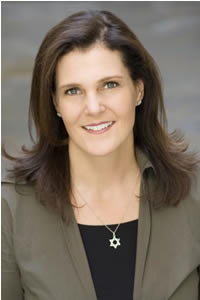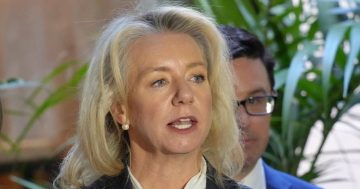Lydia Dishman* describes how executive Kirsten Wolberg overcame unconscious bias to make a success of her career.
 Several years ago, Kirsten Wolberg (pictured) was interviewing with a major company when the hiring manager urged her to try for a different role than the one she was seeking.
Several years ago, Kirsten Wolberg (pictured) was interviewing with a major company when the hiring manager urged her to try for a different role than the one she was seeking.
It was an executive technology role, and there were no other women at leadership levels at the time.
“I didn’t get the sense in the interview process that there was a specific focus on hiring a woman,” Mr Wolberg said.
“I think it was very specifically tied to the skills that I brought to the table.”
So when she got the job, she hit the ground running, only to halt in her tracks a few months later after receiving her first 360-degree review, based on anonymous input from co-workers.
Ms Wolberg, who’s now Chief Technology and Operations Officer at DocuSign, told Fast Company how unprepared she was for the criticism she received.
Or for her colleagues’ changed attitudes after the unconscious bias training that followed.
“I was pretty oblivious to a lot of what was going on,” she said.
“This particular company would do 360-stakeholder reviews roughly after the first 100 days on the job, just to make sure the executives were onboarding in a positive way.
“When I sat down with the readout, I realised that things were not great, and in fact they were quite bad.
“It was the first time in my career I ever heard of this kind of feedback.
“The things that I heard most frequently were that I was too ambitious and I was trying to position myself as a successor to my boss, deemed as inappropriate and too aggressive”.
“The other thing I heard was that I really was focused on me and not the team.
“To hear that was like a punch in the stomach.
“Then the final criticism was just a lot of style points on abrasiveness, too brash, not listening, and talking too much.”
She started to look for a new job.
“I really felt like I was in a place that didn’t get me,” she said.
“I’d just taken the job, and I was super excited about it, [but] if I wasn’t going to be able to be myself and I had to constantly think about everything before I opened my mouth, I wasn’t in the right place.”
That was about the time when the company brought in a professional organisation that has done a lot of unconscious bias training.
“What the organiser recommended was that instead of bringing all the women together, we should really start focusing on educating the men around these biases,” Ms Wolberg said.
“My boss came up to me afterward and said: ‘I think I owe you an apology because a lot of the feedback I gave you was actually more about the unconscious bias that exists and the fact that you’re a woman’.”
“I felt vindicated.
“I felt like I had permission to be my authentic self, to really show up as a woman in that space.
“That’s not to say that all unconscious bias went away after that — because it still existed — but I had my confidence back .
“I do think the overwhelming majority of men want to do the right thing and think they are doing the right thing.
“It’s not until they get the training, [and] see what they’re doing and how they’re doing it and how unconscious it is, that the changes can really happen.”
* Lydia Dishman is a reporter writing about the intersection of tech, leadership, and innovation.
This article first appeared at www.fastcompany.com.











